| |  | | | As the West Wavers, New Powers Seize the Moment in the Middle East By Ahnaf Kalam ● Oct 23, 2024 Smart Brevity® count: 5.5 mins...1404 words This edition of MEF Dispatch explores America's (inadvertent) push for allies such as Argentina, Israel, and Taiwan to bolster their international standing and step into roles previously dominated by a now-weaker United States. MEF president Daniel Pipes analyses this changing dynamic, where allies are forced to fortify their own defenses in the absence of American hard power—developments that may lead to a more decentralized and resilient global order. Meanwhile, Israel's relentless campaign against Hezbollah highlights the limitations of U.S. diplomacy in the Middle East, as Israel refuses to be dissuaded in its quest to dismantle the terrorist group. We also examine President Biden's Iran policy, including questioning whether U.S. engagement with reformers may, in fact, embolden the regime's harsh tactics. We also assess the role civilians play in supporting dictatorships, using Hamas as a case study. Finally, we turn our attention to Greece, where the rise of Dawat-e-Islami poses a significant security threat and underscores the challenges that mass migration from Muslim countries poses to European nations' national security. | | Let Argentina, Israel, Italy, Taiwan, and Others Lead 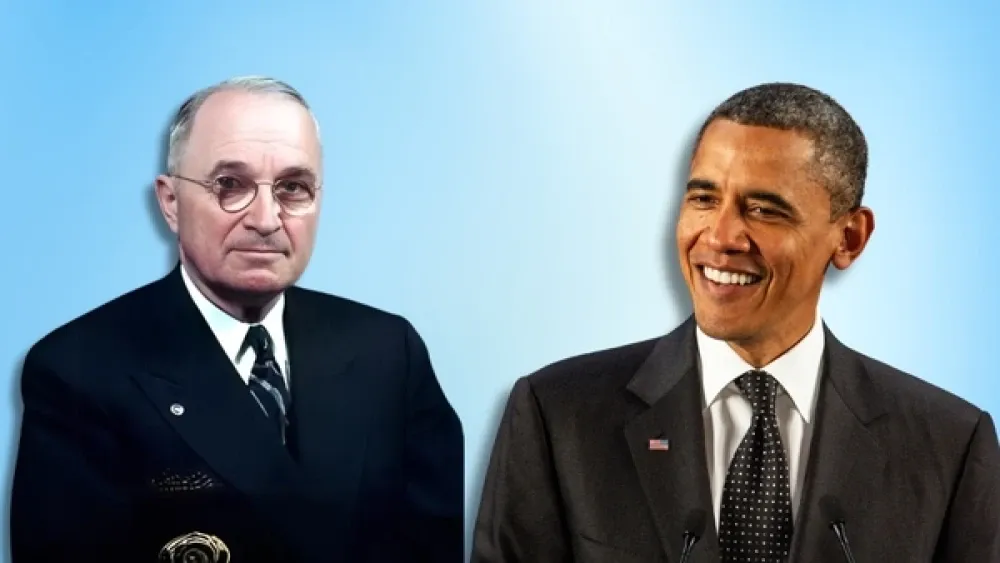 By: Daniel Pipes The U.S. is stepping back, prompting allies to fortify their own defenses. Why it matters: This shift forces allied nations to enhance their military and diplomatic capabilities, promoting a more balanced global power structure. Local Awakening: Countries like Denmark and Germany previously relied heavily on U.S. military strength, but now face the reality of self-defense. Regional Dynamics: In the Middle East, an informal alliance against Iran, led by Saudi Arabia, emerges, showcasing regional cooperation without U.S. intervention. Looking Ahead: The future may see a consortium of nations like Argentina, Israel, and Taiwan stepping into leadership roles, potentially strengthening the free world. | | Israel Won't Be Distracted by Ceasefire Talks 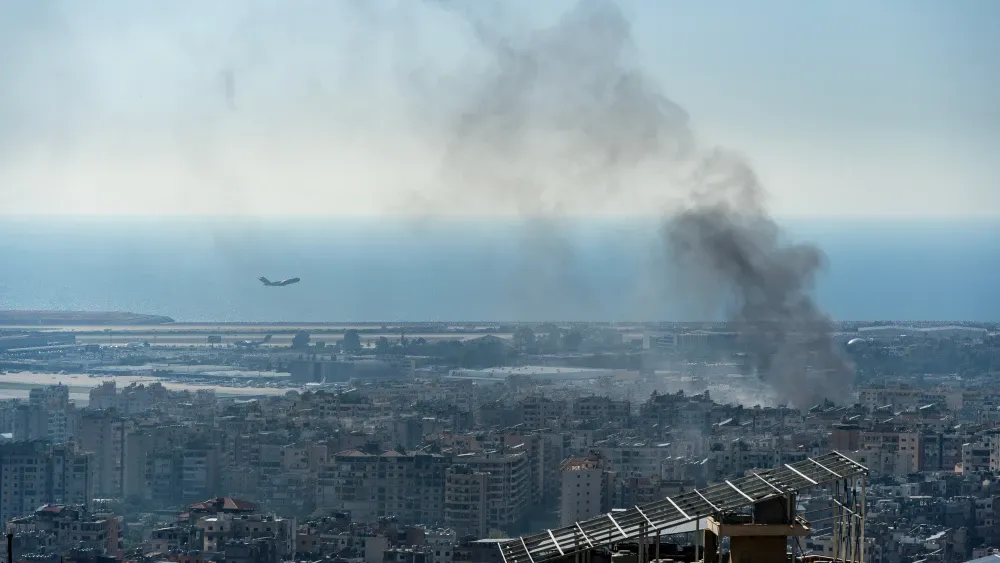 By: Jonathan Spyer Despite U.S. diplomatic efforts, Israel remains focused on dismantling Hezbollah's infrastructure. Why it matters: The ongoing conflict highlights the complexities of Middle Eastern geopolitics and the limitations of external diplomatic interventions. War Dynamics: Israel's military operations in Lebanon continue, targeting Hezbollah's key strongholds with significant success. Diplomatic Challenges: The Lebanese government's inability to control Hezbollah complicates peace efforts, leaving the U.S. in a challenging position. Strategic Implications: Israel's success in weakening Hezbollah's capabilities could reshape regional power dynamics, setting a new precedent for future conflicts. | | Biden's Iran Diplomacy Is Killing Iranians 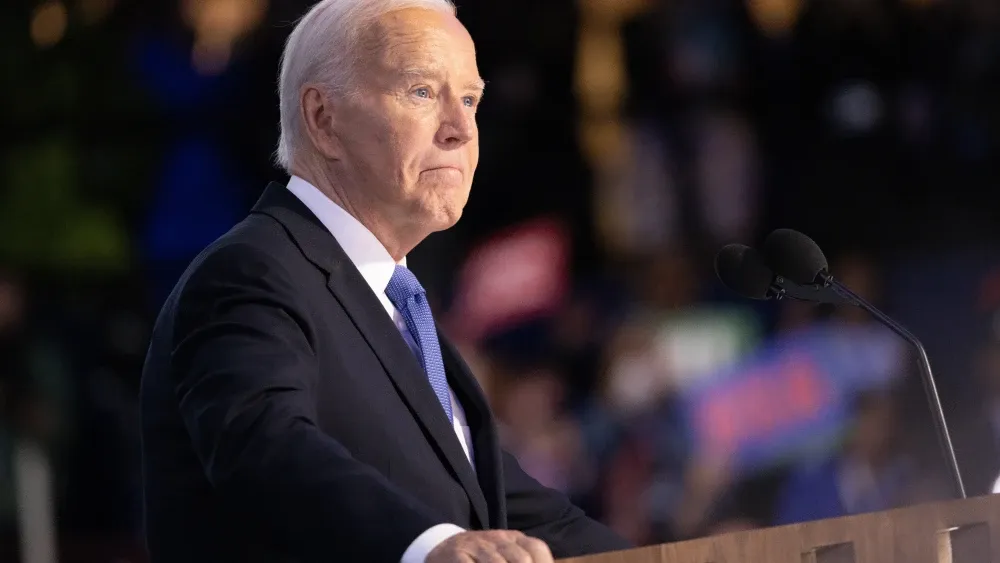 By: Michael Rubin U.S. engagement with Iranian reformers may unintentionally bolster the regime's harsh tactics. Why it matters: The Biden administration's approach could lead to increased executions in Iran, as reformist rhetoric masks brutal realities. Misguided Assumptions: U.S. policymakers often fail to grasp that Iranian reformers and hardliners share similar goals, differing only in tactics. A Rigged System: The Iranian electorate's inability to effect policy change highlights the regime's control and repression. Consequences of Engagement: By supporting reformers, the U.S. might inadvertently empower the Islamic regime's oppressive measures. | | Are Palestinians Responsible for Hamas? Are Civilians Responsible for Dictatorships? 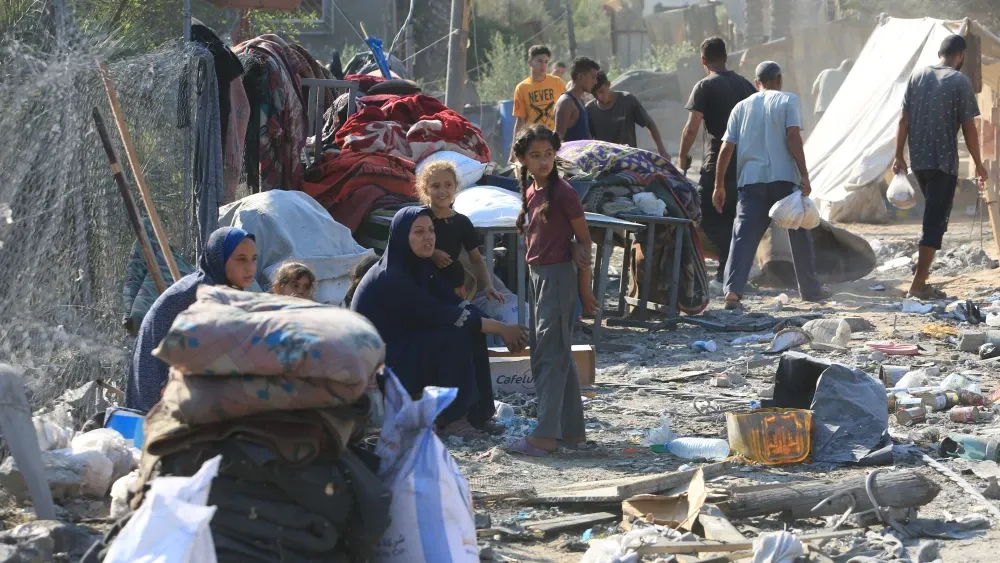 By: Eric Navarro The role of populations in supporting dictatorial regimes is under scrutiny. Why it matters: Recognizing the collective will behind leaders like Hamas's Sinwar could reshape Western policy strategies. The People's Role: Leaders don't rise in isolation; they often reflect the will or tolerance of their populations. Strategic Implications: Policymakers must consider the societal structures that sustain oppressive regimes. Path to Change: True transformation occurs when populations actively reject their leadership. | | The Situation Along the Syrian Side of the Golan: Interview 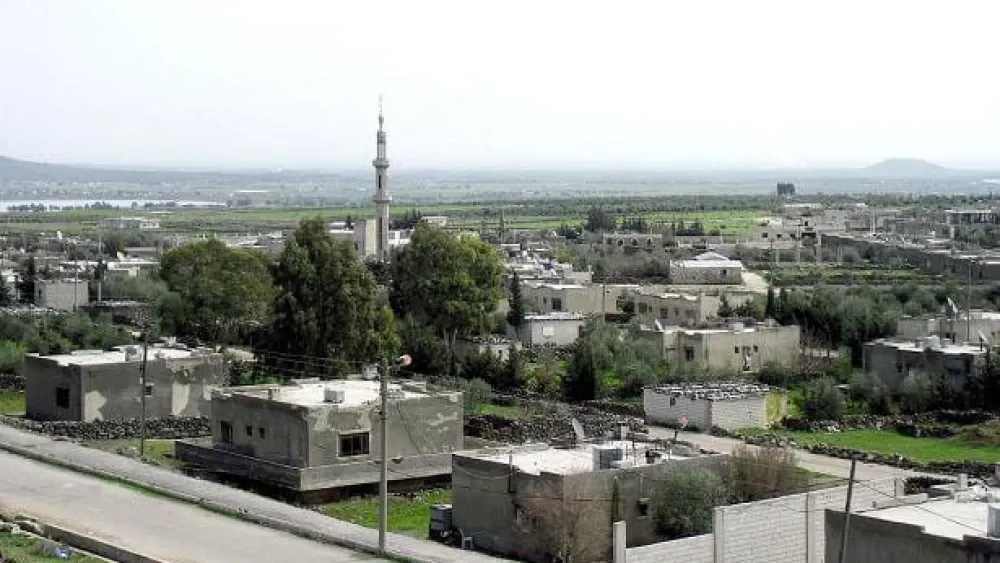 By: Aymenn Jawad al-Tamimi Local insights reveal complex dynamics amid Israeli-Hezbollah conflicts. Why it matters: Understanding local perceptions helps assess potential conflict escalation along the Golan Heights-Syria border. Security Overview: Al-Rafid residents report a generally stable yet tense security situation, with local forces showing weakness. Hezbollah's Presence: Reports suggest Hezbollah's limited presence in southern al-Qunaytra, with a stronger foothold in the north. Local Sentiments: Residents of al-Rafid express skepticism about Syria's military capability against Israel. | | The Pezeshkian Paradox: Iran's New President and the Islamic Revolutionary Guard Corps 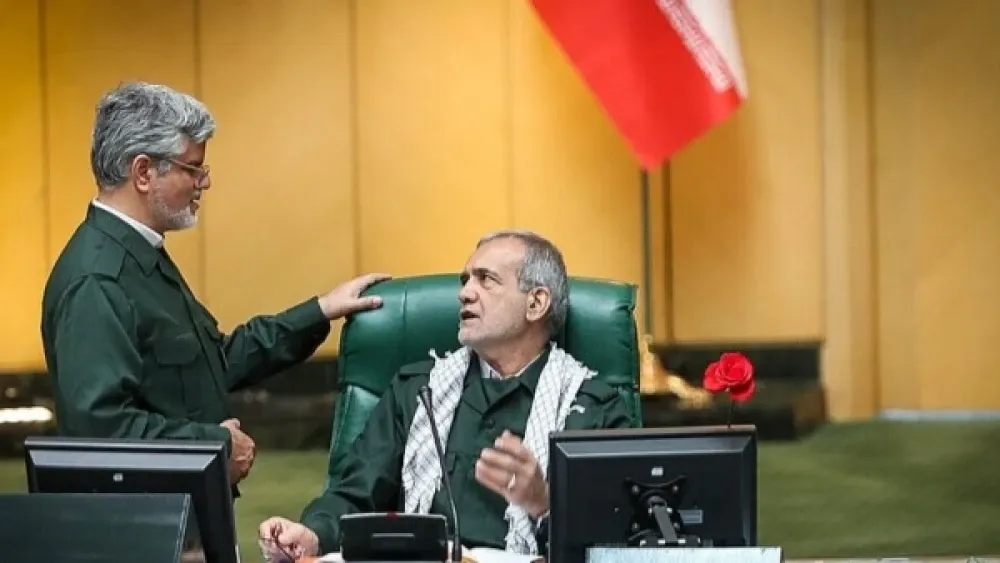 By: Saied Golkar, Kasra Aarabi Iran's new president faces a dilemma between appeasing the IRGC and fulfilling reformist promises. Why it matters: Pezeshkian's presidency highlights the tension between Iran's reformist aspirations and the entrenched power of the IRGC. IRGC Influence: The IRGC's ideological and economic control presents a significant challenge for Pezeshkian. Economic Entanglements: The IRGC's economic interests are deeply woven into Iran's fabric, complicating reform efforts. Potential Outcomes: Pezeshkian's presidency may experience political paralysis if he fails to navigate these competing interests. | | Greece Confronts New Internal Islamist Threat: The Dawat-e-Islami Organization 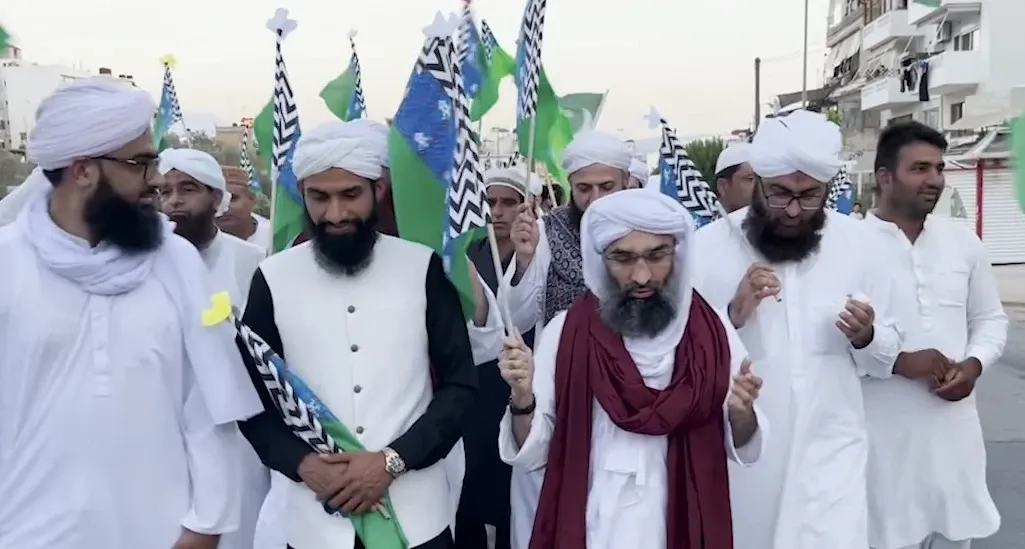 By: Uzay Bulut The Dawat-e-Islami organization poses a national security risk as it expands in Greece. Why it matters: The rise of Dawat-e-Islami highlights the challenges Greece faces with radical Islamist movements. Dawat-e-Islami's Influence: This Pakistani organization has a history of promoting radical ideologies and violence. Cultural and Political Impact: The group's activities in Greece include proselytism and protests, influencing public discourse. Strategic Response Needed: Greek leaders are urged to reconsider immigration policies amid rising radical Islamist threats. | | WATCH: Ryan Mauro and Michael Pregent on Elections – Islamism's Reach in American Politics 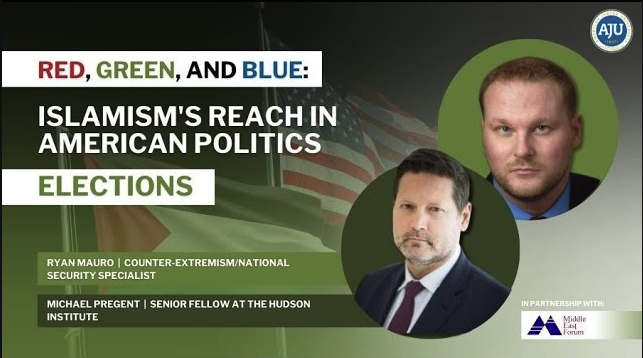 By: Marilyn Stern A joint podcast by MEF and the American Jewish University explores the influence of Islamist subversion of American elections. Why it matters: Malicious Islamist actors and hostile foreign governments aim to sway U.S. politics, posing a threat to democratic processes. Foreign Influence Tactics: Countries like Iran and China use social media to manipulate American political discourse. Campus Activism: Groups like Students for Justice in Palestine are criticized for aligning with extremist narratives. Media's Role: The lack of critical media coverage allows foreign influence to persist, highlighting the need for balanced reporting. | | | | | This edition of MEF Dispatch demonstrates that, in a fast-paced, ever-changing world, the absence of American leadership invites military adventurism from enemies, as we are seeing daily from Iran and its proxies. But it can act as a spur to allies long used to relaxing under American protection to take responsibility for their own security—a net plus given the threats they face. What challenges lie ahead? Will the transformation of international alliances work to the West's advantage in the long run, or will it increase its vulnerabilities to Islamist aggression? We'll address these and other pressing questions in future editions of MEF Dispatch, so stay tuned. Sincerely,
Ahnaf Kalam
Digital Media Specialist
Middle East Forum | | | | Feedback Please share your thoughts on this edition. Was this edition useful?  

Your responses are anonymous |        MEF, an activist think tank, deals with the Middle East, Islamism, U.S. foreign policy, and related topics, urging bold measures to protect Americans and their allies. Pursuing its goals via intellectual and operational means, the Forum recurrently has policy ideas adopted by the U.S. government.
Copyright © 2024 Middle East Forum, All rights reserved.
Our mailing address is:
Middle East Forum
1650 Market Street, Suite 3600
Philadelphia, PA 19103 | | | | | Powered by 
| | This email was sent by Middle East Forum via Axios HQ | | | |
0 коммент.:
Отправить комментарий